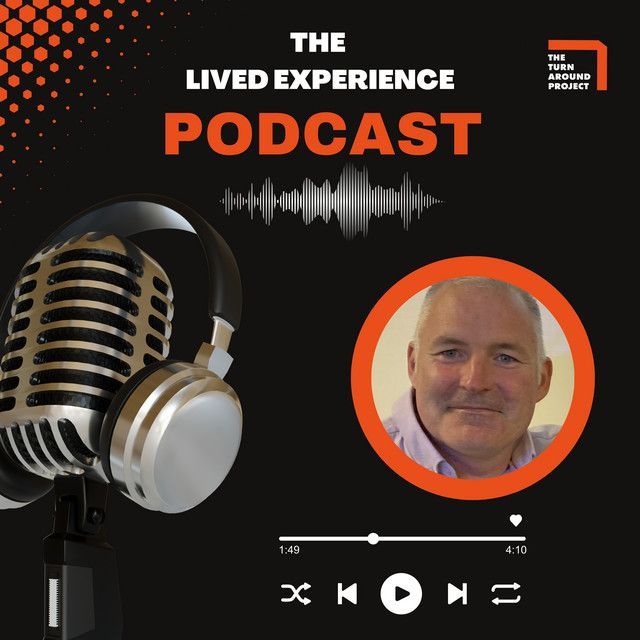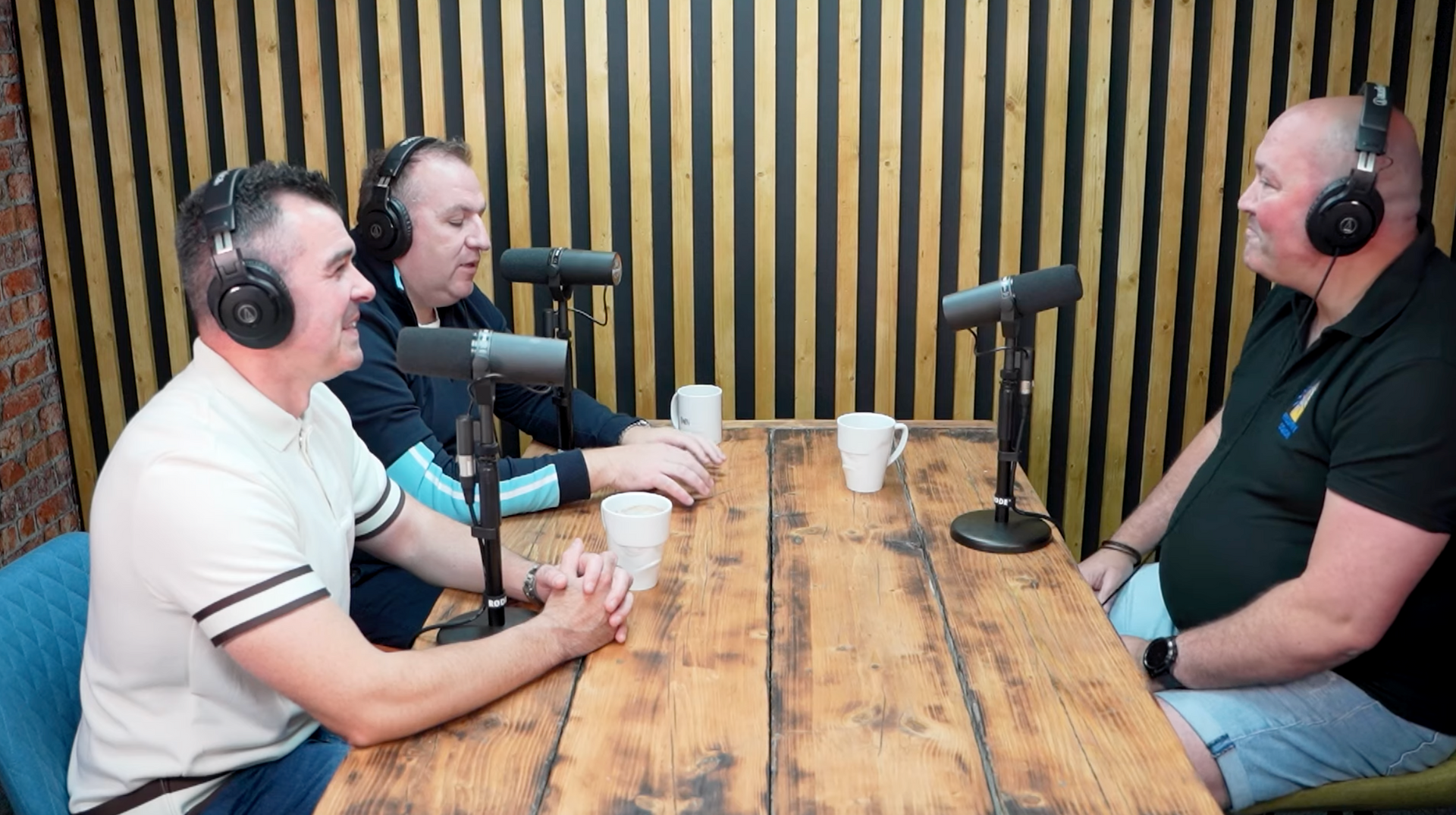Article
Aspire To Inspire
September 28, 2023
Aspire to Inspire is an extraordinary event that celebrates inspiring individuals from diverse backgrounds, providing a platform for them to share their stories and ignite a flame of inspiration.
Through captivating speeches and discussions, this event empowers attendees to dream big, break barriers, and make a positive impact on the world.
share this
Related Articles

Listen as Darren recounts a childhood growing up in West Belfast and becoming Inspired by seeing the Army on the streets. Pursuing a career as a soldier he was guarding the deceased Queens Elizbeth's residencies in the 90s. However, getting involved with alcohol at a young age and continuing this throughout his duration in the service was to have a devastating outcome. The influence of alcohol and violence soon became a real problem and he found himself in prison. Due to his offence being carried while intoxicated he was required to attend AA. This was to plant the initial seed towards recovery and initiating a path of change. Darren states "aspire to inspire before you expire." Turn this up loud. Listen here https://open.spotify.com/episode/3tpZbzXcwxXVwtI0iQX0LD

In this gripping and emotional episode, we sit down with Darren Linton, a man whose life story is nothing short of a roller-coaster ride from darkness to redemption. Darren takes us on a raw journey through the tumultuous chapters of his life, from a turbulent past as a football hooligan to facing the abyss of a potential prison sentence for his violent actions. Darren shares his unwavering determination to break free from the chains of his past and confront the demons that threatened to destroy him.

If your destructive behaviours have got you into trouble in the past, there are ways to change them. Whether it’s overcoming addiction, managing anger or breaking harmful habits here are a few strategies you can use to make positive changes and lead a positive, healthier, more fulfilling life. It can be challenging, but it is entirely possible with a bit of self-awareness, motivation and perseverance. Recognise and acknowledge your behaviour: The first step in changing destructive behaviours is to become aware of them. Take an honest look at your actions, thoughts, and emotions, and identify the behaviours that are causing harm to yourself or others. Acknowledge the negative consequences and understand that change is necessary but your choice. Set clear goals: Clearly define behaviours you want to change and set SMART goals – Specific, Measurable, Achievable, Realistic, and Time-bound. Make sure all your goals are realistic and achievable, as this will help maintain your motivation throughout the process. Break down your goals into smaller, manageable steps to make the change more attainable. Understand your triggers and habits: Reflect on situations, emotions, or circumstances that trigger your destructive behaviours. Identify the patterns and underlying causes behind these actions. Understanding the triggers will enable you to develop strategies to cope with them effectively. One of my personal favourites is the “Ah, f*** it” syndrome, where we decide to throw in the towel way too easily. Remember, it is easy to resort to what you know. Change is difficult, but worth it. Replace destructive behaviours with positive alternatives: Once you have identified your triggers and habits, work on finding healthy alternatives to replace your destructive behaviours. For example, if you tend to engage in emotional eating when stressed, find alternative coping mechanisms like exercise, meditation, or talking to a friend. Replace harmful habits with positive ones. Beating up a tractor tyre in the gym with a large hammer was a personal favourite when feeling the ‘rage’. Punching some innocent bystander always felt appealing but ‘got me nowhere’. Seek support: Changing destructive behaviours can be challenging, and it helps to have a support system in place. Reach out to friends, family, or a support group who can provide encouragement, guidance, and accountability. Consider seeking professional help, such as therapy or counselling, to gain additional support and guidance. A good, honest, straight-talking chat with a trusted friend is absolute gold when expressing real feelings and emotions, and you feel better for it. Practice self-care: Self-care plays a vital role in changing destructive behaviours. Engage in activities that promote your physical, mental, and emotional wellbeing. Practice relaxation techniques, drink a minimum of two litres of water a day, get regular exercise (three times a week is a great start), prioritize sleep, and maintain a healthy diet. Taking care of yourself will help reduce stress and enhance your ability to make positive changes. To this day meditation, visualising, and breathing exercises work a treat for me. Learn new skills: Develop new skills and acquire knowledge that will aid in changing behaviour. This could involve learning effective communication techniques, stress management strategies, problem and conflict management skills, or any other relevant skills that will empower you to make healthier choices. Learning to hold your tongue in particular situations (e.g. with significant others) will pay dividends. Stay accountable: Hold yourself accountable for your actions and your own progress. Keep a journal (harder to do in prison) to track your thoughts, emotions, and behaviours. Regularly review your progress and adjust as needed. Celebrate your successes and learn from setbacks. Share your goals and progress with a trusted individual who can help keep you accountable. Practice patience and resilience: Changing destructive behaviours takes time and effort. It is important to be patient with yourself and understand that setbacks are a natural part of the process. Be resilient and persistent, even if you face challenges along the way. Remember that change is a journey, and every step in the right direction will count. Celebrate milestones: As you make progress and achieve goals, take time to celebrate your milestones. Reward yourself for your hard work and commitment. Celebrating your successes will reinforce positive behaviours and motivate you to continue making positive changes. Changing destructive behaviours is not an overnight process, but by executing these strategies consistently, you can gradually transform your life for the better. Remember to be kind to yourself and seek professional help if needed. With determination and perseverance, you can break free from destructive behaviours and create a healthier, more fulfilling future for you and those around you. ‘Nothing grows in a comfort zone.’


